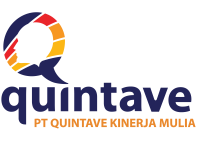In today’s fast-paced business world, developing and managing talent is as crucial as running core operations. Effective talent development can make the difference between a company that merely survives, and one that consistently outperforms its competitors. According to a 2018 McKinsey survey, 99% of respondents who reported their talent management as “very effective” said their companies outperformed rivals. Even more compelling, the study found that strong talent management creates cumulative advantages, strengthening performance over time.
What Is Talent Development?
Talent development is a strategic process focused on attracting, nurturing, and retaining employees with the right skills and potential to meet both current and future organizational needs. It goes beyond recruitment by investing in people through training, performance management, and career growth. Effective talent management ensures employees contribute at their best while preparing the company to stay competitive and adaptable.
Talent Development Trend in 2025
Great talent management programs do not appear overnight. To do it well, talent management requires a thoughtful and methodical approach that balances strategy, people, and organizational goals. In 2025, several emerging trends in talent development may signal how forward-thinking companies can stay ahead and keep their workforce engaged and capable. Here are some key trends every HR manager should know.
1. Leveraging Technology for Smarter Development

In 2025, HR strategies increasingly rely on technology. Tools like Prevue HR, used by Quintave, collect and analyze employee data to guide career planning and personal growth. By turning insights into actionable plans, companies can tailor development paths, track progress, and enhance performance. Technology ensures talent development is continuous, data-driven, and personalized. Making it precise, measurable, and aligned with organizational goals.
2. Prioritizing Upskilling and Reskilling to Bridge Skills Gaps
Skills gaps have become one of the most pressing risks to business growth. This challenge is largely driven by the rapid pace of technological advancements. As new tools and processes emerge, employees must continuously learn and adapt. This makes upskilling and reskilling essential for effective talent development, ensuring employees stay competent, adaptable, and aligned with evolving business needs.
In fact, 41% of executives citing upskilling and reskilling as a top concern. Structured training programs help organizations stay competitive, equip staff with necessary skills, and ensure long-term business success.
3. Personalized Training for Greater Result
Personalized training is transforming talent development by tailoring learning experiences to individual employee needs and career goals. A report by Deloitte shows that organizations with such programs are 30% more likely to achieve higher engagement levels. By aligning training with personal strengths and organizational objectives, companies ensure skills are applied effectively, creating measurable improvements in both performance and long-term business success.
Quintave’s Managerial Leadership Practices program embodies this principle. It provides leaders with hands-on skills, feedback, and frameworks to coach their teams more effectively—creating a multiplier effect for overall talent development.
4. Blended Learning
ATD research shows that over 40% of organizations now use blended learning. This reflects a growing demand for training that combines flexibility with meaningful interaction. Blended learning is reshaping talent development by combining synchronous sessions with instructors or peers and asynchronous self-paced learning.
According to Forbes, 58% of employees prefer learning at their own pace. By implementing blended learning, companies can tailor training to individual needs, enhance engagement, and ensure employees acquire skills effectively while balancing their schedules.
Why Partner with Quintave?

At Quintave Kinerja Mulia, we combine science, data, and practice to deliver talent development solutions that work. Using Prevue HR’s assessment tools, guided by Requisite Organization principles, and enriched through Managerial Leadership Practices, we help organizations:
- Identify hidden talent and leadership potential.
- Align individual capacity with role complexity.
- Provide structured development pathways tailored to organizational goals.
- Build leaders capable of sustaining growth and adaptability.
This holistic approach ensures talent development is not just about filling roles, but about creating future-ready leaders and resilient teams.
In 2025, talent development will continue to be the backbone of organizational success. By embracing technology, prioritizing reskilling, personalizing learning, and adopting blended approaches, HR managers can build stronger, more engaged, and future-ready workforces.
With guidance from Quintave’s consulting, Prevue HR assessments, and leadership workshops, your organization can transform talent development into a powerful driver of growth and long-term success.
Sources:
- http://mckinsey.com/featured-insights/mckinsey-explainers/what-is-talent-management
- https://drive.google.com/file/d/1_uzO1jCMZj5YxLr28Z0nssjHtcuJEq27/view?usp=sharing
- https://www.td.org/product/research-report–blended-learning-leverage-flexibility-to-maximize-results/192412
- https://blogs.vorecol.com/blog-personalizing-training-programs-for-employee-engagement-and-retention-9181
- https://www.forbes.com/sites/danpontefract/2018/10/23/the-1-reason-employees-say-theyve-stopped-learning-is-because-they-dont-have-time/
- Jaques, E. (1989). Requisite Organization. Arlington, VA: Cason Hall & Co.
- Prevue HR System – Global
- Prevue HR System – Quintave
- Quintave – Managerial Leadership Practices




